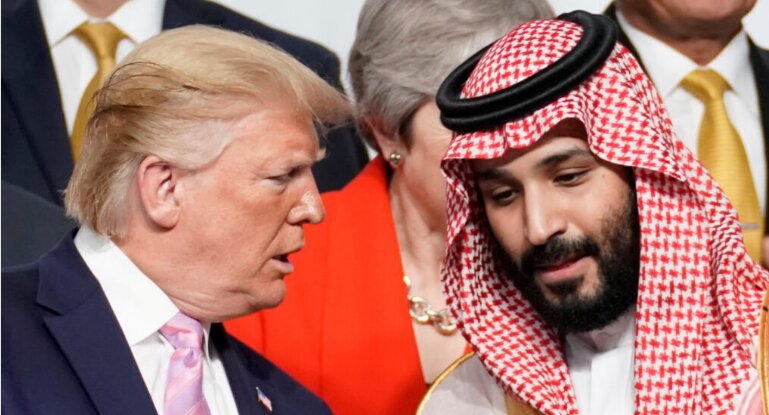Tehran President Donald Trump set out on his first international trip for his second term and returned to Saudi Arabia. However, the visit unfolds against the backdrop of growing regional tensions, including the ongoing Gaza conflict, difficult Iranian nuclear negotiations and shifting partnerships.
Trump’s approach is characterized by personal relationships between trade diplomacy and authoritarian leaders, and aims to readjust US influence in West Asia.
Trump’s visit coincides with the Major (Persian) Gulf Cooperation Council (GCC) Summit held in Riyadh on May 14, bringing together Persian Gulf Arab leaders and the US to address looming local issues. The summit will serve as a platform for discussion of security, economic cooperation and the ongoing challenges facing the region.
Saudi leaders, Crown Prince Mohammed bin Salman (MBS), in particular, see the summit as an opportunity to strengthen relations with the United States and carefully navigate controversial topics such as the Israel-Palestine conflict and normalization with Israel.
US nuclear strategy in West Asia
Potential US-Saudi private nuclear deals, born from President Trump’s visit, represent major strategic developments that have far-reaching impacts on regional security and US impact in West Asia. Unlike previous US administrations, the Trump administration reportedly dropped long-standing US conditions that Saudi Arabia must normalize relations with Israel before it can advance nuclear cooperation.
This shift illustrates the practical separation of the nuclear agreement from the controversial issues of Israel and Saudi Arabia normalization that Riyadh has consistently linked to the progress of the Palestinian state.
However, the deal raises great concern for Israel. Israeli officials fear that moving forward with Saudi Arabia’s nuclear program without Israel’s consent could undermine the security of the region, particularly given Saudi Arabia’s ambitions to enrich uranium. The Netanyahu government has not received enough support from the Senate to block the contract, but expressed concern about being on the sidelines as Washington appears to be determined to proceed without Israeli objections.
This situation could complicate US-Israel relations, change the regional power balance and pressure Israel to readjust its diplomatic and security strategies in response to a more autonomous, nuclear-responsive Saudi Arabia.
In short, the US-Saudi nuclear cooperation initiative reflects a bold readjustment of US West Asia’s policies under Trump, prioritizing Riyadh and strategic and economic interests while changing the heightened tensions with Israel and sensitive regional balances.
During his second term as president, Trump is seeking to expand Abraham’s agreement with as many Arab countries as possible to create a local peace framework, including political, economic and security cooperation. However, the conflict between Israel and Hamas and the recent activities of the Israeli government has made this even more difficult. Saudi Arabia and neighboring Arab countries have condemned Israel’s military action in Gaza, and even MBS has even blamed Israel for genocide, essentially falling, regaining Saudi Arabia’s demand that the Palestinian state is a prerequisite for normalization.
The importance of this trip is notable shortly after the start of Donald Trump’s second season. His choice as Saudi Arabia’s first foreign destination demonstrates the importance of the Middle East in US foreign policy, sending a strong signal that Washington intends to strengthen and strengthen its involvement in the Persian Gulf region. The trip aims to redefine US relationships with major regional international partners and build regional security architectures.
Ultimately, Trump’s trip to Saudi Arabia runs far deeper than usual diplomatic visits, including important strategic messages and fundamental changes in US foreign policy and regional dynamics. With its focus on two main pillars of key investments, advanced arms sales, nuclear cooperation, and the necessary rethinking of the Palestine and Israeli issues, this trip offers a new chapter in the highly complex and tense history of West Asia, which can bring about fundamental changes in safety, political and economic equations.

